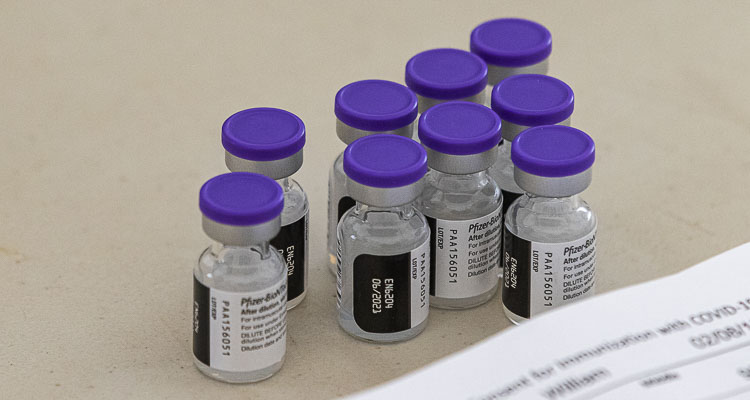
‘Big Pharma is the least trusted industry’
Art Moore
WND News Center
Declaring Big Pharma “the least trusted industry,” editors of one of the world’s oldest medical journals called for regulators and public health bodies to release raw data from the COVID-19 vaccine trials to provide answers to critical questions such as why vaccine trials were not designed to test efficacy against infection and spread of SARS-CoV-2.
The British Medical Journal article by senior editor Peter Doshi, editor-in-chief Kamrn Abbasi and former editor-in-chief Fiona Godlee argued that if regulators had insisted on transparency, countries would have learned sooner “about the effect of vaccines on transmission and been able to plan accordingly.”
“Big pharma is the least trusted industry,” they write. “At least three of the many companies making covid-19 vaccines have past criminal and civil settlements costing them billions of dollars. One pleaded guilty to fraud. Other companies have no pre-covid track record. Now the covid pandemic has minted many new pharma billionaires, and vaccine manufacturers have reported tens of billions in revenue.”
In a previous BMJ article, Doshi pointed out that trial registries and other publicly released information indicated the trials were assessing the vaccines’ ability to protect against “severe” COVID-19 rather than to prevent the disease itself.
The editors said the BMJ, which was founded in 1840, supports vaccination policies based on sound evidence.
“As the global vaccine rollout continues, it cannot be justifiable or in the best interests of patients and the public that we are left to just trust ‘in the system,’ with the distant hope that the underlying data may become available for independent scrutiny at some point in the future,” they said.
They contend the same applies to treatments for COVID-19.
“Transparency is the key to building trust and an important route to answering people’s legitimate questions about the efficacy and safety of vaccines and treatments and the clinical and public health policies established for their use.”
In November, as WND reported, the British Medical Journal published an analysis of evidence compiled by a whistleblower charging that a contract research company that helped carry out Pfizer’s COVID-19 vaccine trial falsified data. Leaked documents and the testimony of two former employees of the company, Ventavia, corroborate claims by the whistleblower, Brook Jackson. She charged that during the pivotal Phase III trial, Ventavia unblinded patients, employed inadequately trained vaccinators and was slow to follow up on reported adverse events.
The BMJ is a weekly, peer-reviewed medical trade journal, published by the trade union the British Medical Association. However, The BMJ has editorial freedom from the BMA.
Earlier this month, a federal judge ruled the U.S. Food and Drug Administration won’t have 75 years, as requested, to release thousands of pages of documents it relied on to license its COVID-19 vaccine. U.S. District Judge Mark Pittman ruled the agency will have a little more than eight months to produce the documents sought through a Freedom of Information Act lawsuit by a coalition of doctors and scientists.
In the BMJ article published Thursday, the editors noted that 12 years ago the journal called for the immediate release of raw data from all clinical trials.
“Data must be available when trial results are announced, published, or used to justify regulatory decisions,” they said.
They argue that the public has paid for COVID-19 vaccines through vast public funding of research, “and it is the public that takes on the balance of benefits and harms that accompany vaccination.”
Further, pharmaceutical companies “are reaping vast profits without adequate independent scrutiny of their scientific claims.”
“The purpose of regulators is not to dance to the tune of rich global corporations and enrich them further; it is to protect the health of their populations,” he concluded. We need complete data transparency for all studies, we need it in the public interest, and we need it now.”









